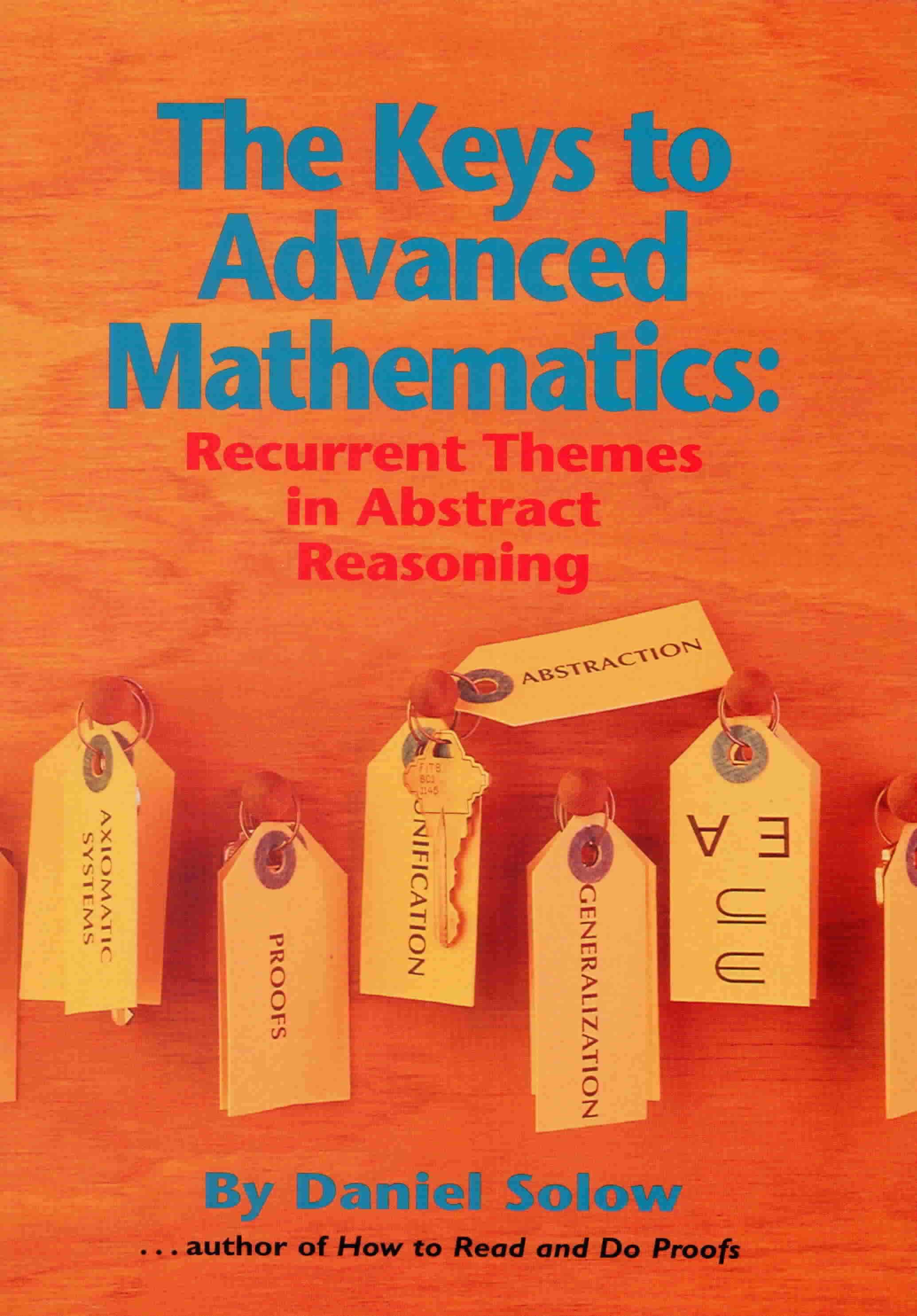
| TEXTS: The Keys
to Advanced Mathematics : Recurrent
Themes in Abstract Reasoning by Daniel Solow ( Paperback,
Books
Unlimited,1995 ) |
 |
| Proof in Geometry by A. I. Fetisov (Out of Print- Bookstore Reprint, D. C. Heath, Boston, 1963). |
SCOPE: This course will provide a foundation for further work
in mathematics.This will be accomplished primarily by informal but
careful
and rigorous exploration of key topics related to mathematical
reasoning.
This will include a discussion of many of the essential tools for any
mathematical
discourse and problem solving: sets, functions, and relations; problems
and conjectures; evidence, proofs and refutations; and direct and
indirect
arguments.
Several topics from discrete mathematics will provide additional
opportunities
for using these tools.
Lectures will organize the topics to present materials not covered
in
the texts as well as those treated in the texts. We will cover material
from Solow contained in chapters 1 to 3, 5.1, and 6.2.4; selections
from Fetisov, and perhaps others as
time permits. Supplementary
readings and materials will be supplied as appropriate.
Summaries of lectures may be available through the course webpage.
TECHNOLOGY: We may use the computer at various stages of this course to illustrate and investigate some of the topics. No particular software will be required..
TESTS AND ASSIGNMENTS:Proof Without Words: An explanation of an alternate weekly proof
without
words will be assigned to be done cooperatively by partnerships and due on
alternate Fridays
beginning September 1st. (Accepted one day tardy at
most!)
At most 3 persons per partnership.
The proof analyses and proofs without words will be graded Honors(4)/Good(3)/Credit(2)/NCr(0). (Accepted one day tardy at most!)
Regular Homework: Shorter problem assignments (about 5-10
problems)
will be made on a regular basis for each class.
Homework assignments will not be
accepted
after 5 p.m. of the due date and will be graded
Well-done (4),
Good (3), Acceptable (2), Unacceptable(1) No Credit(0)
Reality Check Quizzes: During the term I will give several
reality
check quizzes. These will usually be available and submitted on
Moodle, covering work from the previous recent assignments and
class
discussions.
Midterm Examinations: There will be two self-scheduled mid-term examinations.These will be announced a week in advance and will be worth 100 points each. There will also be a mid term coorperative assignment worth 50 points.
FINAL ASSESSMENT: The final assessment will be in two parts.
Part I will be a partnership take home examination that will be
due
on the last day of the final examination period.
AT MOST 3 PERSONS PER PARTNERSHIP! Part I will be
distributed
on the Friday before the last week of classes.
Part II will be an
individual
self-scheduled 90 minute examination given during the final examination
period.
Part I will be worth 100 points. Part II will be worth 150
points or 300 points according to the following rule:
The final grade will use the score for Part II of the final
that maximizes the average for the term based on all possible points.
GRADES: Final grades will be based on the accumulation of points in the various categories of assignments as indicated in the following chart:
| Proof Analyses | 25 |
| Proof w/o Words | 25 |
| Homework | 100 |
| Reality Check Quizzes | 50 |
| Midterm Examinations | 250 |
| Final Assessment Part I | 100 |
| Final Assessmant Part II | 150 or 300 |
| Total Points........... | 700 or 850 |